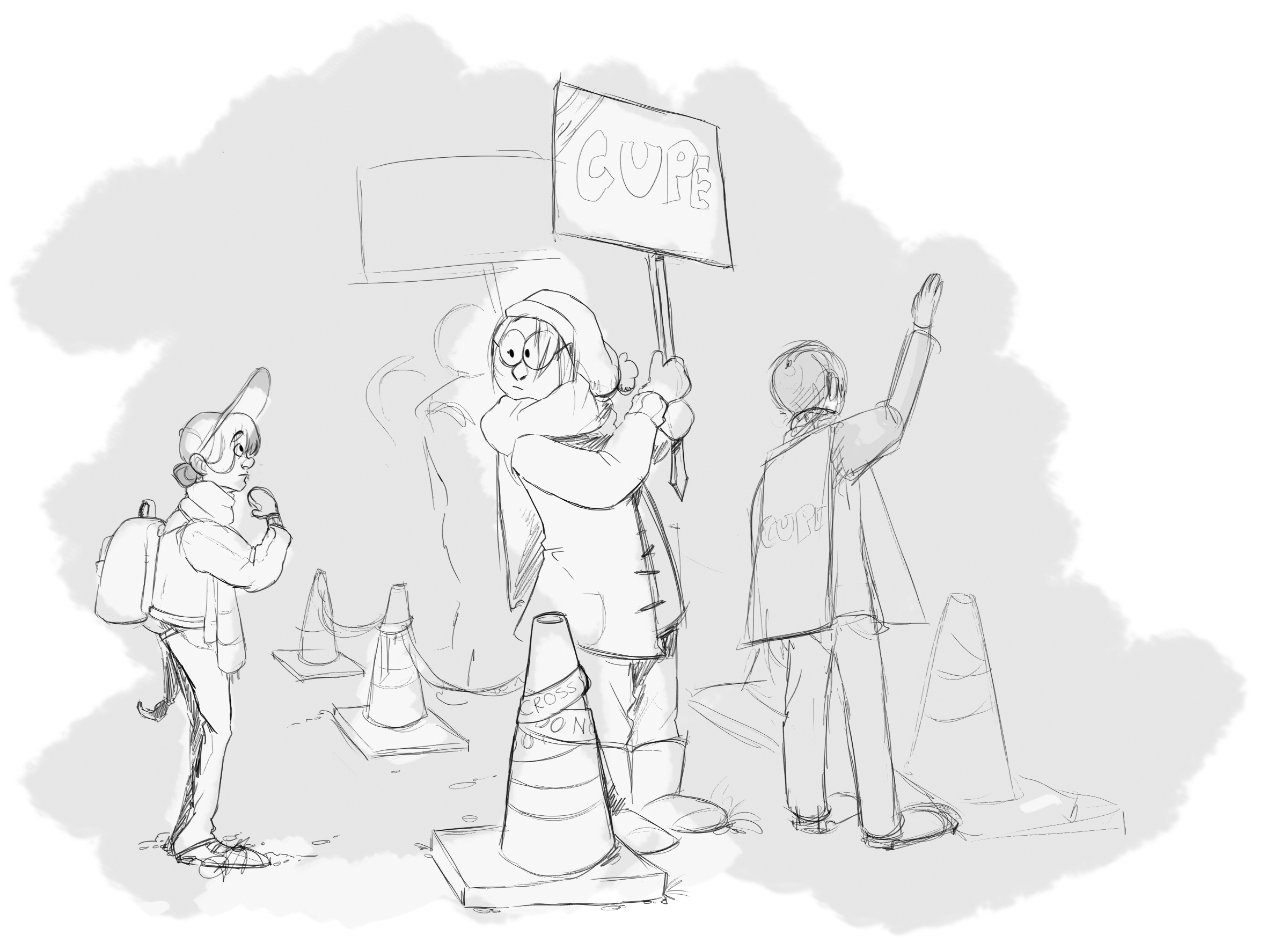Dennis Bayazitov | Assistant News Editor
Featured image | Rowan Campbell
One week down. Who knows how many more to go.
Picketers are proactively dissuading you from attending classes. York, meanwhile, is not strictly enforcing obligation to attend said classes—nor has it officially suspended them.
Whether (not likely) an arrangement is reached this week, or classes are suspended, the remaining term is cancelled altogether, or York continues operating “business as usual,” the ball, as of now, is in the Senate Executive Committee’s court. It is ultimately they who determine what changes will be made to the end-of-term schedule, and what any of the accommodations will be—so long as academic integrity is upheld, adding compensatory time.
In the case of an agreement being reached, the administration would need to rejoin the bargaining table. Sadly, they have not done so for the past 11 days.
Naturally, in finding yourself in this academic limbo of sorts, it is understandable why you might feel withdrawn or powerless right about now. You must know, however, this is not true. Just about the worst thing you can do right now is become distracted from your studies and disengage entirely.
First thing’s first, if your classes are in session, regardless of your appreciation for the Canadian Union of Local Employees (CUPE) local 3903 or York, it is simply in your academic interest to keep attending and make use of this time. Why? Because this is a unique time—one that, similarly, encourages your peers to disengage, to not attend class, and to stop submitting assignments.
If your professors have not yet cancelled classes, it means one thing above all else: they care about your success. Don’t just sit there, waiting—take action.
Appreciate. Take advantage of this opportunity and let your professor help you. The smaller your class size gets, the more attention you will have from the professor to secure that A+.
CUPE 3903, moreover, might have already told you you don’t need to attend class. Understand why: as far as the Union is concerned, the most compelling way for undergraduates to bring this strike to an end is to refuse York’s attempt to teach you within a labour disruption, effectively supporting their cause.
This is not something you have to do, and it is understandable if you don’t want to; however, you are protected from reprisal in the case you choose to. Not attending class would clearly contradict York’s perpetuation of the idea it is proceeding “business as usual.” There are picketers at every entrance of this school, and professors are cancelling classes—this is far from business as usual.
While your voice alone might be scant and seemingly insignificant, paired with your peers’, in numbers, it has the power to hold York accountable. You, as students, can write and send petitions directly to the York administrators to demand they get back to the table. As students, you can come to rallies, amplify your message, and gain further momentum.
Most powerful of all, however, you can use social media.
Remember: York is a multimillion dollar business. Many of its executives have close to half-million-dollar salaries, yet York claims poverty—according to CUPE 3903. They cut services. They raise tuition on an annual basis. You can pinpoint York’s hypocrisy on social media, which, believe it or not, does hurt—especially when shared, reshared, and brought to the eyes of the public in mass numbers. Students crack jokes all the time, saying how vague and inconsistent their social media, open letters, and security bulletins can be.
So, generate momentum. Don’t be silent.
Lastly, while extreme, it is not unprecedented for undergraduate groups to threaten the administration with legal action. At the end of the day, it is the administration that collects and profits off undergraduate tuition—not the Union. York collects tuition from nearly 2,000 Union members—not all that dissimilar from undergraduates, in that respect.
When students threaten legal action against university administration for holding on to undergraduates’ full tuition, but not offering full access to classes and services they agreed to provide, that tends to get their attention, as the public relations consequences become dire.
Your voice, as a student, is more powerful than you think. If you attend class, you are serving yourself. If you don’t attend class, you serve CUPE 3903, arguably the underdog in this fight. If you hold York accountable, you serve everyone.
But if you don’t do anything, you serve no one. So don’t disengage. Take action.


